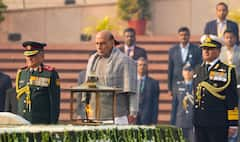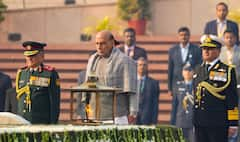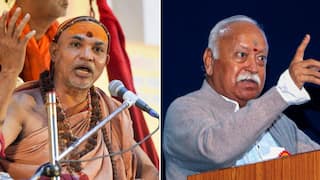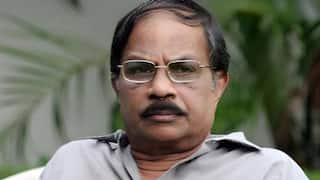Passive Euthanasia: Supreme Court Removes Condition Of Magistrate's Approval For Living Will
The new guidelines issued by the Supreme Court will make the process of passive euthanasia simpler.

To make India's "living will" process -- an advance written statement that details a person's desire regarding future medical procedures -- less cumbersome, the Supreme Court on Tuesday removed a condition that mandated a magistrate's approval for withdrawal or withholding of life support to a terminally ill person.
The new guidelines will make process of passive euthanasia simpler. Earlier guidelines, as framed by the Supreme Court in 2018, required intervention of district collector and judicial magistrate.
Euthanasia is the process of deliberately putting an end to a person's life to eliminate pain or suffering.
A five-judge Constitution bench, headed by Justice KM Joseph and comprising Justices Ajay Rastogi, Aniruddha Bose, Hrishikesh Roy, CT Ravikumar, said the document would now be signed by the executor of the living will in the presence of two attesting witnesses, preferably independent, and attested before a notary or Gazetted Officer, PTI reported.
"The witnesses and the notary shall record their satisfaction that the document has been executed voluntarily and without any coercion or inducement or compulsion and with full understanding of all the relevant information and consequences," the Supreme Court bench said.
The court was hearing a plea seeking modification of the guidelines for the Living Will/Advance Medical Directive issued by it in 2018.
The apex court also agreed to the suggestion that the executor shall inform and hand over a copy of the advance directive to the family physician, if any.
It also approved the suggestion that in the event of the executor becoming terminally ill and undergoing prolonged medical treatment with no hope of recovery, the treating physician, when made aware about the Advance Directive, shall ascertain the genuineness and authenticity of the document.
The top court had earlier pulled up the Centre for not enacting a law on passive euthanasia as laid down in its 2018 judgement, saying it was abdicating its legislative responsibility and passing the buck on the judiciary.
The 2018 SC order on passive euthanasia recognised the right to die with dignity as a fundamental right and an aspect of Article 21 (right to life).
In its March 9, 2018 judgment, the apex court recognised that a terminally ill patient or a person in a persistent vegetative state might execute an advance medical directive or a "living will" to refuse medical treatment, holding that the right to live with dignity also included "smoothening" the process of dying.
(With PTI inputs)
Trending News
Top Headlines





































